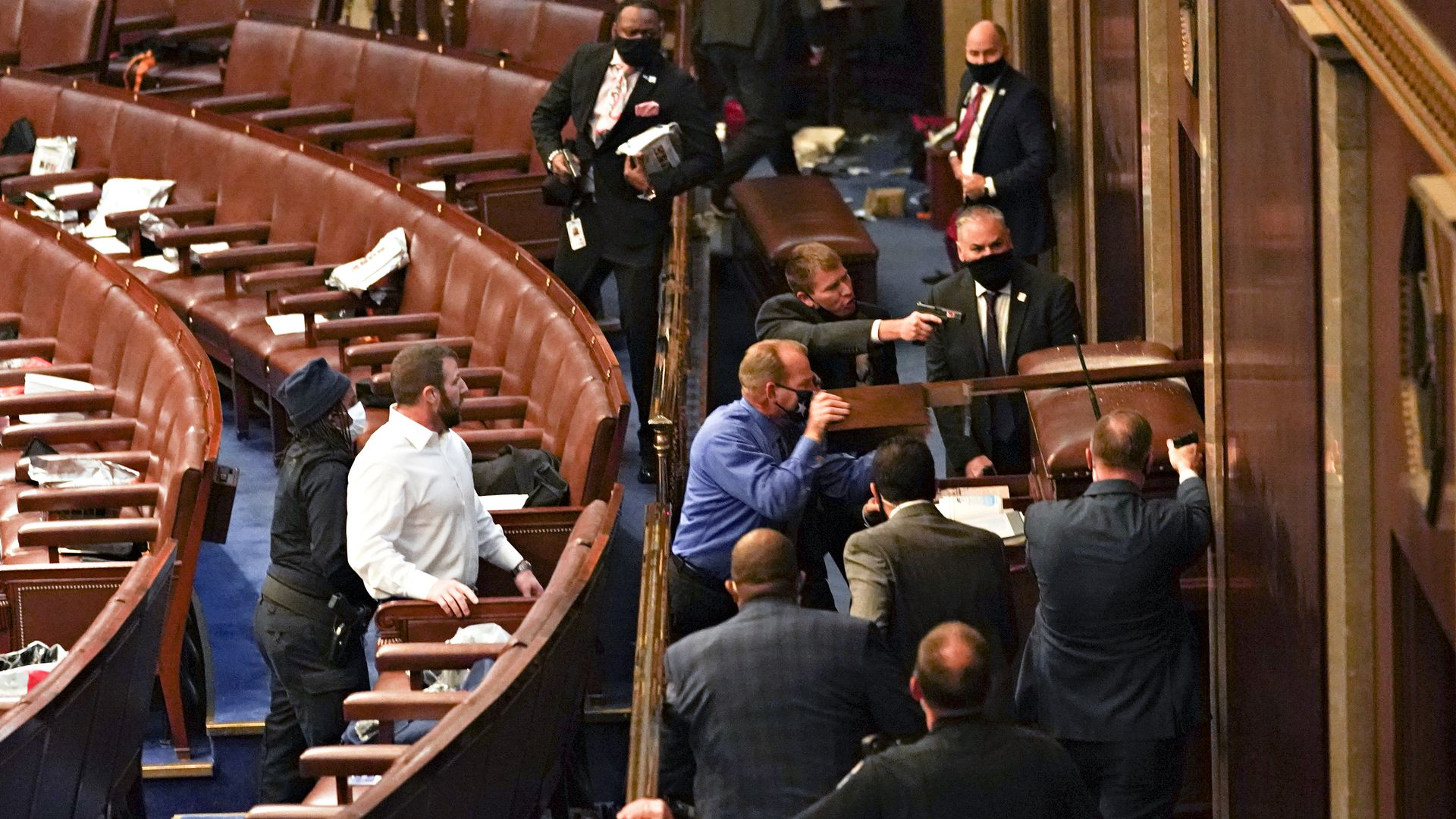Doomsday commission proposes changes in case of tragic House deaths
Add Axios as your preferred source to
see more of our stories on Google.

Members of the Capitol Police point guns at doors in the House Chamber amid the Jan. 6 insurrection. Photo: Stefani Reynolds/Bloomberg via Getty Images
The bipartisan Continuity of Government Commission is recommending a constitutional amendment to allow the House to temporarily fill vacancies when members die.
Why it matters: A number of concerns — including violence against lawmakers, the pandemic and Jan. 6 insurrection — have put a fresh spotlight on doomsday protocols. In this case, the question is what happens when a catastrophic event leads to the death of an elected member of Congress.
Between the lines: The Senate has a clearly established succession plan: When a member dies, their home state's governor appoints a replacement.
- That person serves until a permanent successor is picked through a special or the next regular election cycle.
- The House doesn't have anything similar. A vacancy remains until the special election is held.
The commission, rejuvenated last fall after an incarnation following the 9/11 attack, is pushing for a constitutional amendment.
It would require House members to designate, confidentially, a list of replacements to serve in their stead if they're killed or incapacitated.
- The new member would take over immediately, allowing the body to act quickly should it be a chaotic time, but serve only until a special election is held.
- The automatic replacement would not be used in the case of resignations or expulsions.
- In those cases, the normal special-election process would be used.
The big picture: The commission was established in 2002 by the American Enterprise Institute and the Brookings Institution, two prominent Washington thinktanks.
- It issued three reports focused on Congress and the presidency before going dormant in 2011.
- In a joint op-ed in September, co-chairs A.B. Culvahouse and Donna Shalala said COVID-19 and the Jan. 6 insurrection gave fresh impetus to enact commission reforms.
- The body is now supported by AEI and includes four former members of Congress, a circuit court judge and former administration officials.
Flashback: One of the commissioners, former Rep. Mike Bishop (R-Mich.), was on a baseball field in Alexandria, Va, in 2017 when a gunman opened fire as members practiced for a congressional baseball game.
The shooting critically injured Rep. Steve Scalise (R-La.) and others.
- "We've dodged a bullet in the past, so to speak, but who knows when our luck will run out?" Bishop testified last week before the House Select Committee on the Modernization of Congress.
What they're saying: "What happens if they kill us? What happens to this institution?" former Rep. Brian Baird (D-Wash.) said he thought at the time of 9/11.
"I've been doing this for twenty years now. ... We are not prepared, and we still aren't," Baird said during the hearing.
- John Fortier, executive director of the commission, told Axios: "What we really need is a mechanism for filling vacancies and so that if lots of people die, they can be filled like in the Senate, so that, immediately, you can have a Congress."
- "You want a Congress there to respond."
But, but, but: There are others who've argued the House remains a legislative body and should not have members who are unelected to craft and vote on laws.
